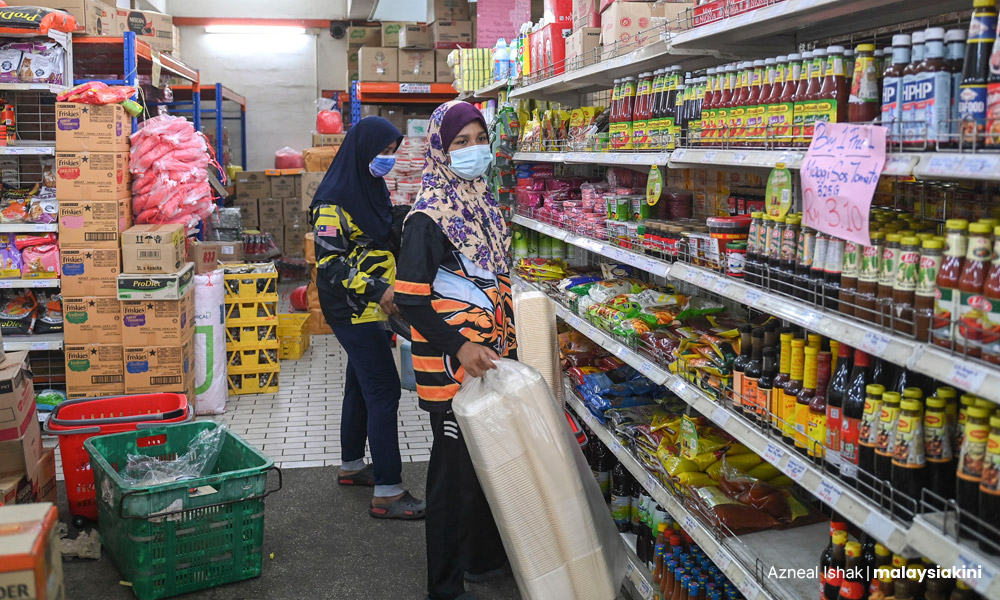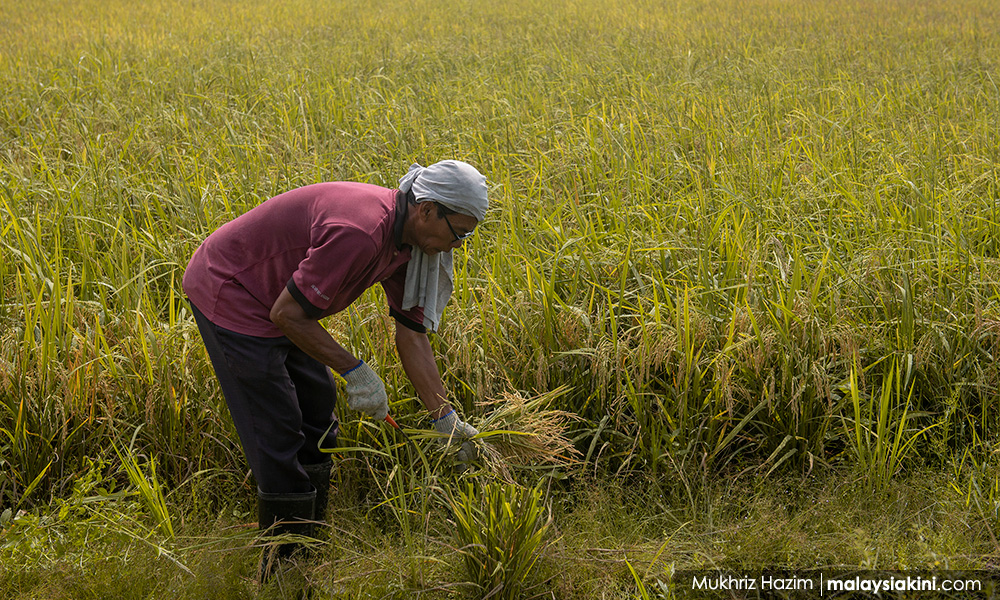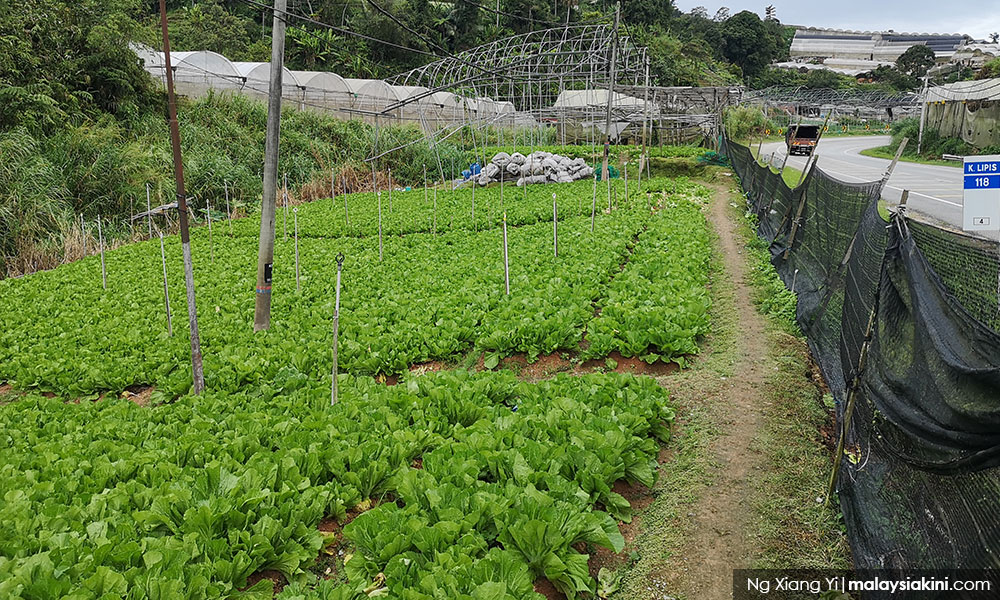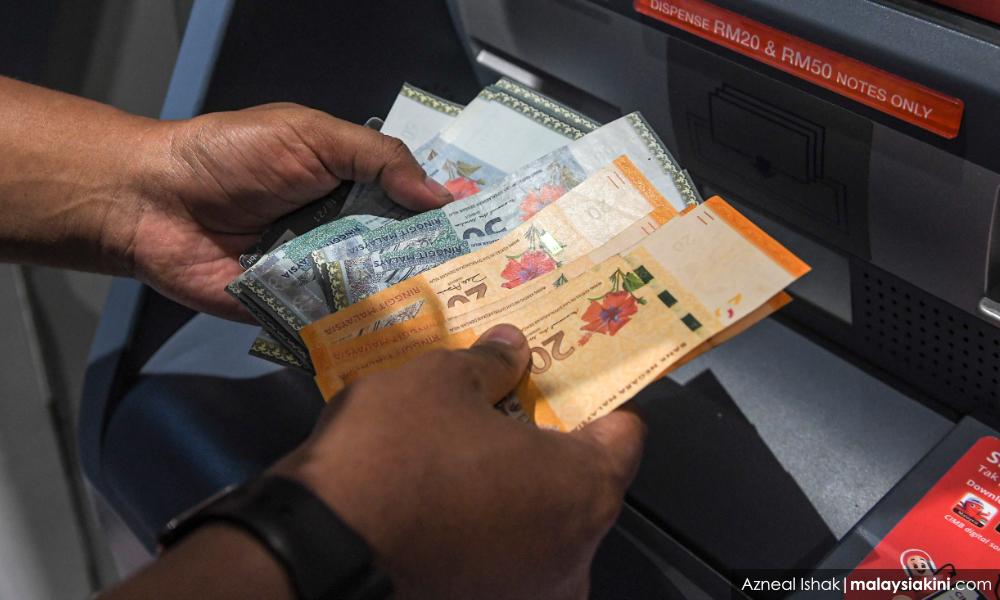Economy Minister Rafizi Ramli is confident that the People's Income Initiative (IPR) will avoid the pitfalls and shortcomings of previous poverty eradication programmes.
To this end, he hoped that opposition MPs and assemblypersons - especially in states with rates of poverty - will help in efforts to identify those who would benefit from the programme.
The IPR is a programme aimed at helping the hardcore poor generate between RM2,000 to RM2,500 in monthly income by taking part in one of three sectors - food, agriculture, and services.
The participants would be monitored by the ministry over 24 months, with the hope that participants become self-sufficient after that period.
Speaking at a lengthy press conference in Putrajaya today, Rafizi said since its launch last week, there have been over 22,000 participants who have registered to take part in IPR - which he said was highly encouraging.
Of this number, he said 52 percent signed up for the Inisiatif Usahawan Makanan (Insan) programme where participants would sell food - priced at RM2 - at vending machines in strategic locations.

Paired with the RM5 Menu Rahmah meals, this would hopefully address the demand for affordable meals to the public, he said.
He added that if consumers support such initiatives, this would lead to competition among businesses to match these prices, which will in turn help drive down the price of meals outside the home which is a major contributor to inflation at the moment.
IPR's complete supply chain
Meanwhile, Rafizi said another 29 percent of IPR applications were for the Inisiatif Usahawan Tani (Intan) programme, where participants would be allowed to farm on small plots of government land.
Rafizi said in the past, such programmes had failed due to various factors.
One example he cited, was that the government would provide prospective farmers with the tools they need, but little else, which would saddle them later on with the burden of having to buy fertiliser for their crops.
He added that past programmes also left it to participants to sell and market their produce.
Comparatively, he said the IPR took into account the entire supply chain.
He said the ministry, for example, has factored in various aspects such as fertiliser, electricity, and others so that Intan participants would not be saddled with these costs.
He added that the IPR has also lined up buyers for Intan produce to ensure it does not go unsold and so that 100 percent of the proceeds would go to the participants.
Thus far, he said 376 companies, agencies, and other parties have signed up to be the buyers of goods produced under Intan.
He said some of the industry partners - which include supermarkets - will also be placing Insan vending machines at their premises.
The economic minister said the first Intan farm will be launched in Putrajaya in the first week of April, with 20 participants.
He said it will be a 4.04-ha plot of land, with each participant getting 0.2ha of land to work on.
"It's in Putrajaya so it is close to the ministry, and also to the Klang Valley which is more affected by price fluctuation.
"It's also easy for myself and the (Economy Ministry) secretary-general to inspect the plants," he quipped.

Rafizi said 800 plots of land for the Intan programme have already been identified, and that the government is trying to fast-track getting the necessary approvals for the participants to work on government land.
As for the IPR's Inisiatif Operator Perkhidmatan (Ikhsan) programme - which provides service operator opportunities - Rafizi said the aim is for participants to take up service jobs in state governments and local councils which are currently being awarded via contracts.
Not one size fits all
He said his ministry will be meeting with the state governments and local councils soon to discuss this.
In its entirety, Rafizi stressed that the IPR programme is not a one size fits all programme.
For example, he said a participant in a rural part of the country, who lives 50km away from the nearest viable business location, can possibly be expected to sell food under Ihsan, or take up a service job under Ikhsan.
"(These options) would not make sense," he said.
As such, he said it is important for the ministry to conduct a mapping process so that prospective participants are matched to the right programmes.
He said this also ensures that the right type of foods are being sold or the right type of crops is grown in order to meet the specific demands of each community.

However, the minister said the number of applicants for the IPR programme from states with high rates of poverty is currently very low.
He said of the over 22,000 applicants thus far, only 1.7 percent were from Kelantan, Terengganu (1.5 percent), Perlis (0.5 percent), Sabah (5.7 percent) and Sarawak (2.4 percent).
In comparison, 34 percent of applicants thus far are from Selangor, Johor (11 percent), Perak (9 percent, and Kuala Lumpur (8.5 percent).
Opposition help needed
To this end, Rafizi said he hoped to meet with opposition representatives so that they can persuade their constituents in need to register for IPR.
"I hope (IPR) will not be politicised. I invite elected representatives from the opposition to sit with us so that they can also be involved in finding those in poverty to take part in this initiative," he said.
He said the ministry aims to give special attention to expanding IPR to the 20 poorest districts in the country such as Pitas, Kudat and Kota Marudu in Sabah, Jeli, Kuala Krai, and Bachok in Kelantan, and Besut and Marang in Terengganu.
Sabah and Sarawak's ruling coalitions are part of the federal government, whereas Kelantan, Terengganu and Perlis are led by the opposition.
Govt will fix low wage structure
On the issue of wages, Rafizi said the government was committed to addressing it.
This is wages and prices must be in balance, he said.
However, he refused to divulge any details, saying that there were a lot of studies and consultations to be done before any announcements are made.
This, he said, will avoid situations such as when employers get spooked and upset at attempts to increase wages, which he said can derail such efforts.
"It is enough for the public to understand that for the first time, this is an administration that is focused on fixing the low wage structure," Rafizi said.

Asked how he will address those members of the public expecting government handouts, Rafizi said he would not talk down to the public.
"I will not lecture the public, I will not tell them 'stop waiting for handouts'," he said.
Instead, he said that the IPR has shown that people are willing to take up challenges, and understand that it is better to take the proverbial fishing rod than the fish.
He also said that the public will eventually accept that with a debt of RM1.35 trillion, the government doesn't have as much fiscal space to give handouts regardless of public pressure. - Mkini



No comments:
Post a Comment
Note: Only a member of this blog may post a comment.